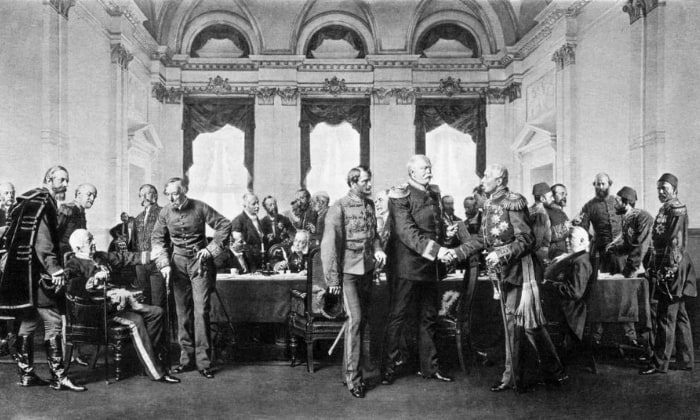What are the military benefits of having colonies?
Historically, colonies have provided the ruling state with various military advantages. These include strengthened defense capabilities, the acquisition of resources, and strategic benefits such as increased geopolitical influence. Indeed, such benefits have been crucial in influencing military plans and global relations.
This article delves into the topic of colonial military advantages, both historically and in the present day.
Table of Contents
The History of Colonialism
Colonialism refers to the practice of establishing governmental dominance over a foreign nation, populating it with a new population, and then using that population as a resource.
Colonization has a long and storied history that may be traced back to antiquity.
1. Ancient Colonialism
Various ancient civilizations, like the Phoenicians, Greeks, and Romans, spread out to found colonies around the globe.
The colonizing power generally established these settlements for financial reasons, as they allowed entry to untapped resources and markets. They could be used as military outposts to show one’s superiority over another.
2. The Age of Discovery
The Age of Discovery in the 15th century marked the beginning of the modern era of colonialism.
During this time, Europeans began to explore other continents like the Americas, Africa, and Asia. Many of these pioneers had their sights set on the economic benefit of amassing wealth and power, and they often resorted to violence to establish colonies.
3. The 19th Century
Europe’s colonial empire grew rapidly in the nineteenth century. This is because the Industrial Revolution necessitated the development of new supply chains and consumer bases.
Likewise, European powers fought among themselves to secure these assets.
4. The 20th Century
European colonialism fell on hard times in the 20th century. Reasons for this include colonial nationalist sentiment, the two wars, and the decolonization effort. Most colonial territories achieved their independence by the century’s end.
5. The Legacy of Colonialism
The legacy of imperialism, as reflected by the widespread practice of colonialism, can be found throughout the world.
Imperialism has caused millions of people to be displaced, natural resources to be exploited, and cultural customs to be eroded. Its consequences continue reverberating across many locations, producing ongoing tensions and wars.
The Military Benefits of Having Colonies
Having colonies can provide the dominant country with various military advantages. Some major benefits are as follows:
1. Enhanced Defense Capabilities
Strategic military colonies can expand a country’s defensive perimeter by maintaining a constant presence on the front lines.
These facilities provide logistical aid, intelligence collection, and short reaction time, allowing for prompt military intervention.
2. Resource Acquisition
Colonies frequently have access to key commodities, raw materials, and rare minerals. Having access to these resources is crucial for the creation of weapons, the building of infrastructure, and the maintenance of a nation’s economy.
3. Geopolitical Influence
By establishing colonies in strategic locations, the dominant power can increase its sphere of influence and consolidate its hold on the territory.
Nation-states can improve their geopolitical standing by strategically placing military colonies to project power, influence local politics, create laws for colonies, and gain favorable trade agreements.
4. Recruitment of Local Forces
The armed forces of the reigning state may find recruits from the colonial population. The ruling power can increase its military might by recruiting natives or organizing colonial militias, with the added benefit of learning more about the area and its possible allies.
Examples of Countries That Benefited from Having Colonies:
- The United States of America: used to occupy the Philippines and continues to influence its government. Guam and Puerto Rico remain to be territories of the US.
- United Kingdom: At its peak, the British Empire encompassed over a quarter of the Earth’s total territory, making it the largest colonizer in history. Some of its former colonies are India, Hong Kong, and parts of East Africa.
- France: In terms of global colonial influence, the French were second only to the British. France governed colonies totaling around 4,980,000 square miles during the 19th and 20th centuries. These include territories in Africa and Southeast Asia.
Conclusion
Colonisation has played a crucial role in influencing the flow of history and the balance of power worldwide. We already learn the answer to, what are the military benefits of having colonies?
These advantages have been noted historically in the context of colonial military strategy. Even if the whole idea of colonies has changed over time, learning about their significance might help illuminate the strategic advantages they provided.

I am Everett Bledsoe, taking on the responsibility of content producer for The Soldiers Project. My purpose in this project is to give honest reviews on the gear utilized and tested over time. Of course, you cannot go wrong when checking out our package of information and guide, too, as they come from reliable sources and years of experience.




